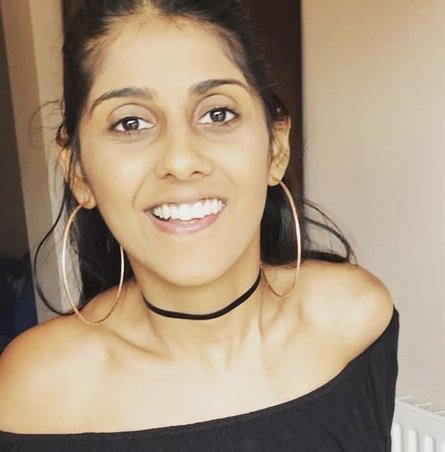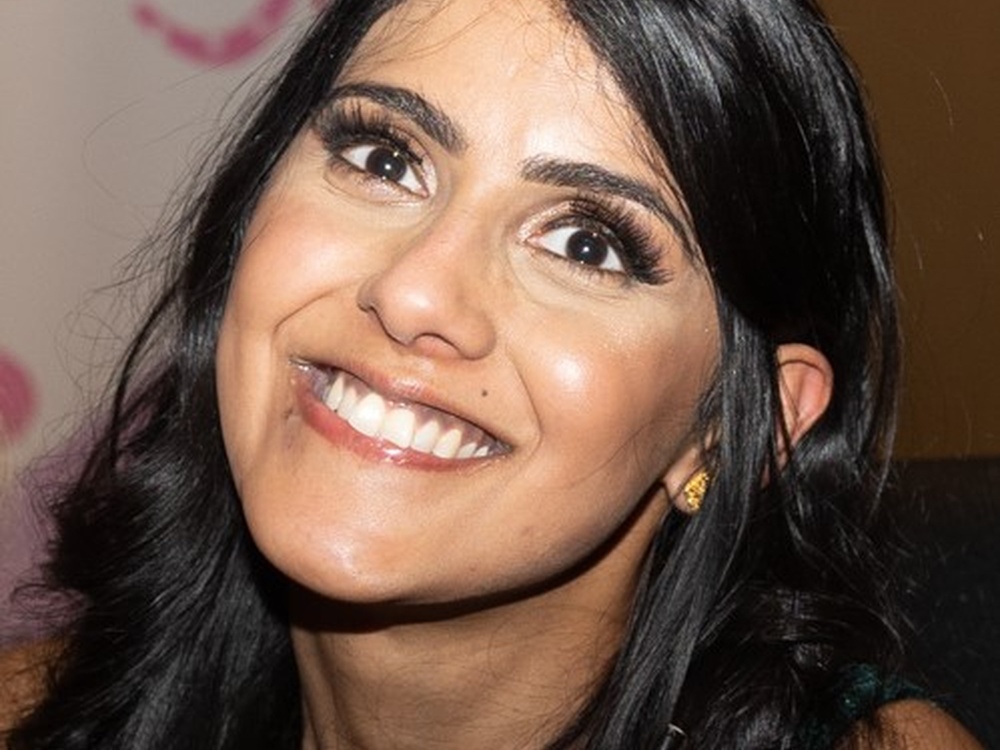From a very early age, Bal recalls her speech being different from the rest of her family and friends. Childhood memories include numerous speech therapy appointments with her grandad, and her mum dragging her to what felt like every hospital around the country to seek advice. But at no point during her youth did Bal appreciate that one day, due to the nature of her dystonia, her speech would become unintelligible.
It was only at a routine appointment with her GP during the pandemic, when Bal happened to mention that sometimes her friends couldn’t understand her, that she was once again referred for speech and language therapy. After a few virtual appointments, and a variety of exercises that didn’t really help, her speech therapist broached the subject of voice banking. Bal, who at that stage knew nothing about the process, asked what the point of it was. Her speech therapist explained that this was a way Bal could preserve her own voice, as she suspected it would deteriorate so much in the future that she would need to rely on a communication device.
Coming to terms with the news
Needless to say, this came as a huge shock to Bal. “I think I broke down in tears,” she recalls. “It took quite a bit of time to get used to the idea.” But eventually she saw how beneficial the process might be, especially when it came to relationships with loved ones. “My dad finds it difficult to pick up on what I’m saying. Plus normally the TV’s on, the washing machine’s on… you know how it is. It upsets me. I want to be able to speak to him.”

So how does the technology work? Bal had to record herself reading out a minimum of 150 phrases in order for her voice to be banked; in the end she recorded 200. It was a tiring, time-consuming process that took several hours, and Bal chuckles as she recalls ‘call centre Bal’ donning her headset, connecting to her laptop and beginning to read. Once sufficient voice samples are recorded, they’re transferred onto a touchscreen tablet. When she wants to use her device, all Bal now needs to do is type in what she wants to say and the machine will do the rest, reading out the message in her voice.
However, the process didn’t go quite as smoothly as hoped. After she’d completed her recordings, Bal was sent several samples of her new ‘voice’ to choose from. But when she came to listen to them, she was so disappointed because they sounded nothing like her. In fact, one of them made her sound like a 98-year-old! It was only after raising the topic at one of The Lily Foundation’s virtual coffee mornings that Liz and the team got involved, and the foundation were able to help out with funding. Bal’s voice was adjusted to sound more like her, and now she has a result that she’s happy with.
“I wish I’d done this sooner”
Bal is so grateful to the Lily team for the help they’ve given her in preserving her voice. It means the world to her that her illness won’t now silence her. Does she have any advice for younger mito patients who might face a similar challenge in the future? Absolutely. “Bank your voice as early as possible,” she urges. “You don’t have to buy it straightaway but it’s always going to be there, it won’t ever be deleted and it’s not going to disappear. It can be tiring but do it in chunks. I wish I’d done mine sooner.”
Bal hasn’t yet reached the stage where she relies 100% on her communication aid, but she finds it invaluable at university as it enables her to dictate work that would otherwise take much longer to document. She hasn’t needed to use it with her extended family yet, but suspects that time won’t be too far away – talking has become more and more of a struggle in recent months, especially after a long, exhausting day at uni.
Bank your voice as early as possible... it’s always going to be there, it won’t ever be deleted and it’s not going to disappear... I wish I’d done mine sooner."
When it comes to her close family, Bal admits they’re still reluctant to acknowledge her need for this technology. “My mum knows why I need it – she’s a nurse so she understands the medical reasons – but she still can’t accept that her own daughter needs one.” But Bal is optimistic about everyone coming to terms with it in the future. “When I first became a permanent wheelchair user, that took time, but now everyone’s got used to it,” she reasons.
It seems fitting that we leave the last word to Bal: “I’m so grateful, I want to say thank you. Thank you to everyone at Lily and to everyone involved for helping me through this process. I will now always have a voice and that means so much to me.”

